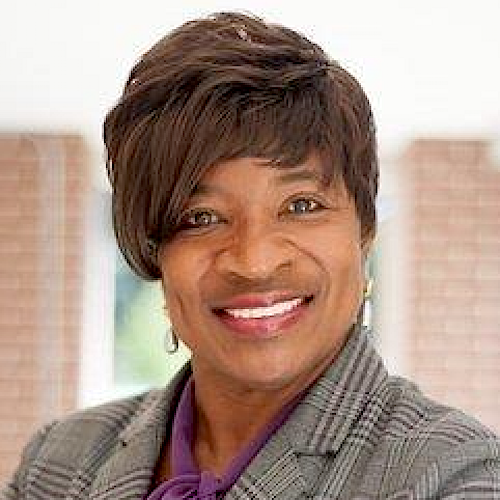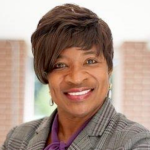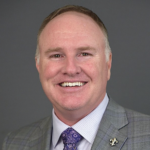
Many companies across the healthcare sector are affirming their commitment to diversity, equity and inclusion — or DEI. Yet too often, this affirmation begins and ends with a focus on how many underrepresented groups the company employs.
We refer to this count as compositional diversity, or the numbers of various groups within an organization. For instance, companies that want to increase their employee base to include more women or people of color would be addressing issues of compositional diversity.
Although compositional diversity is a critical element of increasing organizational diversity, it is not enough. Rather than being a number on a spreadsheet, employees are the embodiment of the organization, and particularly in the senior living industry. Their experiences and well-being shape those of the residents and patients.
Louisville, KY-based senior living and care provider Trilogy Health Services wanted to change the normal practice, so its leadership met with a team of researchers from the University of Louisville to figure out what it could do to embody serious, transformational change in its organization. After a series of meetings over almost a year, Trilogy developed a DEI plan that emphasizes DEI to include its employees belonging to the organization.
Developing a sense of belonging occurs when employees feel as if they are an accepted and valued part of the organization. Having employees who feel a sense of belonging can lead to numerous positive outcomes, such as improved retention and performance. In this article, we describe a senior living-specific DEI plan that is the result of a year-long partnership between academia and industry.
Trilogy’s DEI plan
This plan was developed after several iterations of data collection with Trilogy. We spoke to every level of employee, from the C-suite to the floor staff, to find out how we could capture Trilogy’s existing strengths to further the organization’s commitment to DEI and improve employee and resident outcomes. At the end, the University of Louisville and Trilogy teams recognized four key areas to advance this effort of employees had a sense of belonging at their workplace: accountability, recruitment, retention and development, and culture.
Accountability
Given the large size of Trilogy (more than 110 communities throughout Kentucky, Indiana, Ohio and Michigan), we knew that there would need to be accountability checks to ensure that the program was implemented equitably and fully across all campuses and units. Toward that end, the DEI plan tasks company leaders with developing unit-specific and measurable annual diversity goals. Because we want to ensure DEI is embedded throughout the culture and not merely an annual review, however, these goals will be monitored through quarterly check-points where leaders can assess their progress and readjust as necessary. Similarly, we want to ensure that all employees have a voice in enacting and creating the future of DEI at Trilogy, and thus, leaders will hold regular campus town halls to discuss the progress they have made, solicit feedback from employees and set goals from the future.
Yet accountability is not solely the responsibility of leadership. An oft-quoted maxim states that “a company’s budget reflects its values,” and following this maxim, we wanted to ensure that where Trilogy spent its money reflected the organization’s commitment to DEI. Thus, Trilogy will be conducting an audit of all of its suppliers to ensure that those companies honor Trilogy’s DEI values, and the organization will be revising its supplier contracts to include this consideration. In this way, Trilogy will be able to ensure that it truly is adhering to the principles of DEI through both its values and its actions.
Recruitment
One of the comments we heard repeatedly was that it was difficult to recruit diverse talent, and this comment made us question the current recruiting tactics of the company and how they might be improved. In this phase, we recommended another audit, but this time, it was of the company’s job postings.
Trilogy will be analyzing postings for both content and placement to identify language or phrasing that may deter applicants. At the same time, Trilogy is working on establishing and strengthening partnerships with local and regional organizations that may be able to help facilitate a recruitment pipeline (for instance, universities, community-based non-profits). The company also working is on establishing a business resource group to network with and learn from other companies who are working through similar issues. Through all of these efforts, Trilogy is aiming to increase the diversity of its applicant pools with the goal of further increasing the diversity of its workforce.
Retention and development
Closely related to issues of recruitment are those of retention and development. We heard from Trilogy leaders that it was difficult to retain the most valuable employees, and we heard from employees that they felt stuck without a ladder to advancement.
Thus, in this section, our focus was on creating an environment in which employees felt they could grow and succeed within the company, which, in turn, would decrease turnover. Specifically, Trilogy will be creating individualized employee growth plans that provide employees with concrete steps for advancement, and these growth plans will be paired with advancement and mentorship programs. These professional development programs will provide diverse employees with the tools they need — such as training, resources and mentoring — to move into leadership roles within Trilogy. Although the focus of the programs are employee retention and development, the programs also function as recruitment tools because they enable potential employees to see how they can nurture their careers at Trilogy.
Culture
Among all Trilogy employees, we heard repeatedly that the organization was “like a family.” At the same time, however, we found that many employees felt siloed and disconnected from co-workers outside of their direct units or campus.
To work toward breaking down these silos, Trilogy will be implementing employee resource groups, or ERGs. ERGs are nothing new, but they may be an underutilized way to increase sense of belonging among diverse staff members. These groups may be particularly beneficial for organizations that operate in multiple locations, such as senior living companies that maintain multiple campuses and administrative offices.
At Trilogy, the ERGs will focus on connecting employees with similar interests across campuses, with the goal of creating a stronger sense of belonging with the larger company, rather than with an employee’s day-to-day work environment. Through bringing together like-minded employees from across the organization, the ERGs should help employees see commonalities rather than differences with each other.
Although this DEI plan was tailored to Trilogy Health Services, the principles applied here may work for a wide variety of organizations within and beyond the senior living industry. Through focusing on belonging and enabling every employee to feel accepted and welcomed, organizations can maintain a staff with the diversity of experiences and views necessary to thrive in the modern-day work environment.






